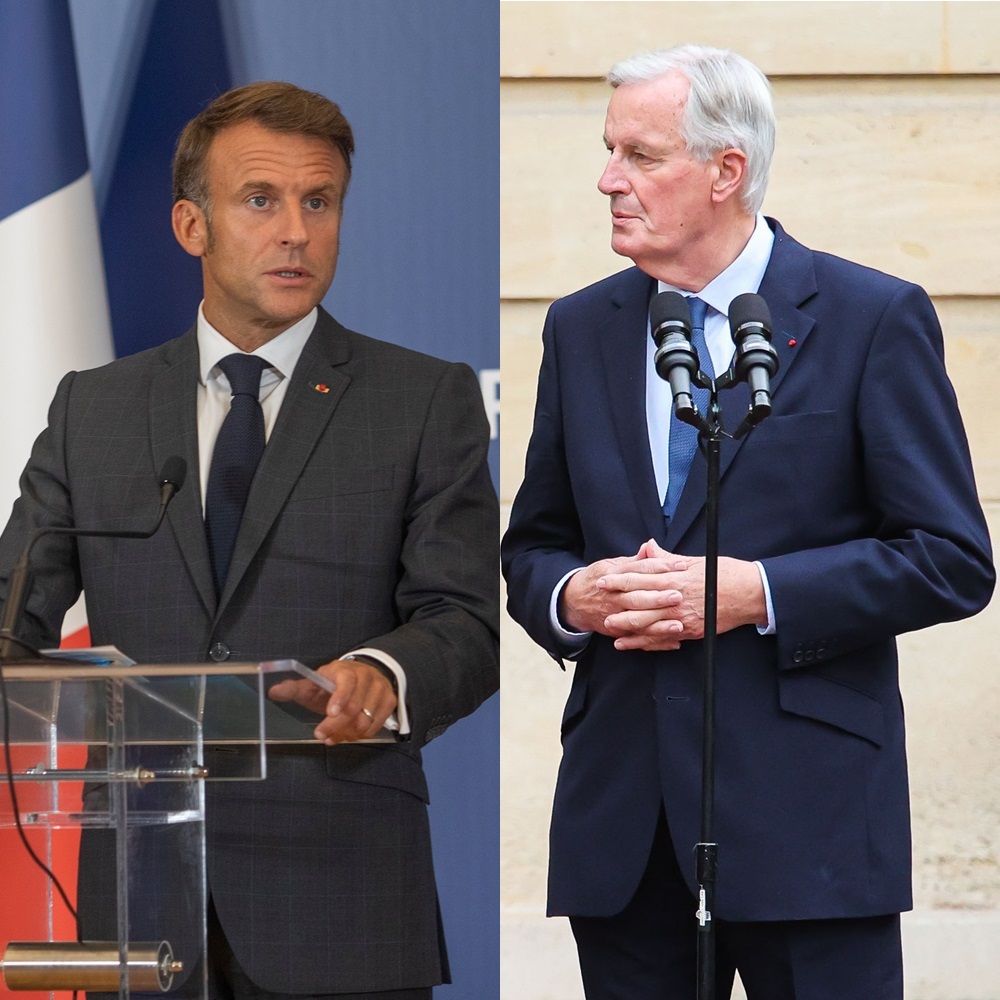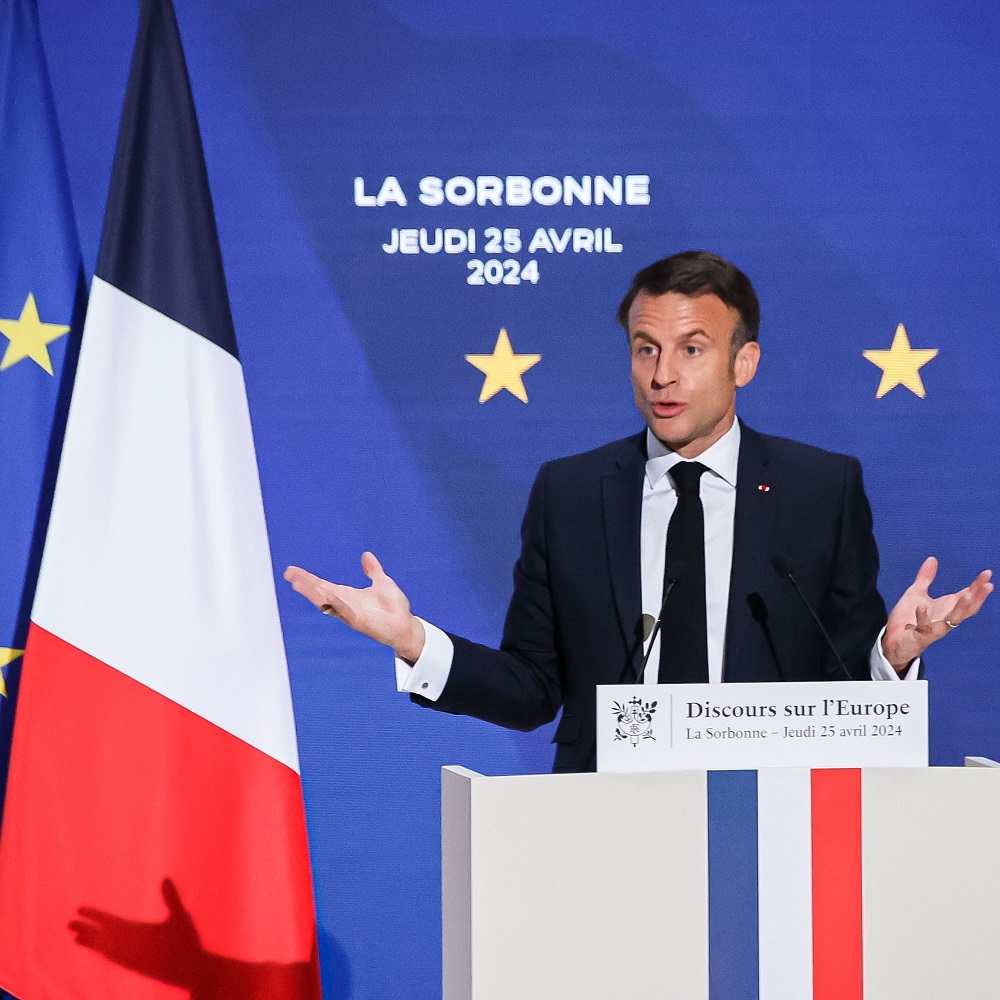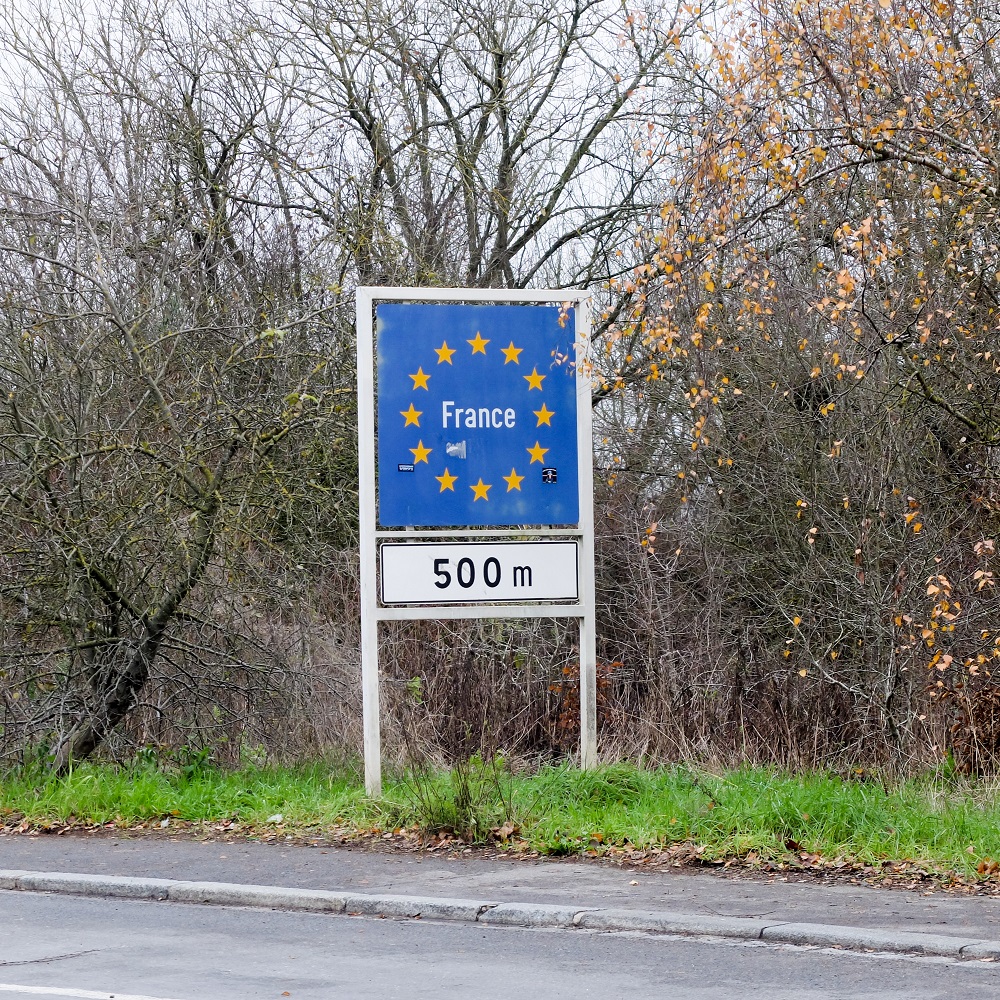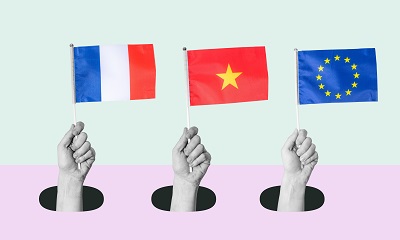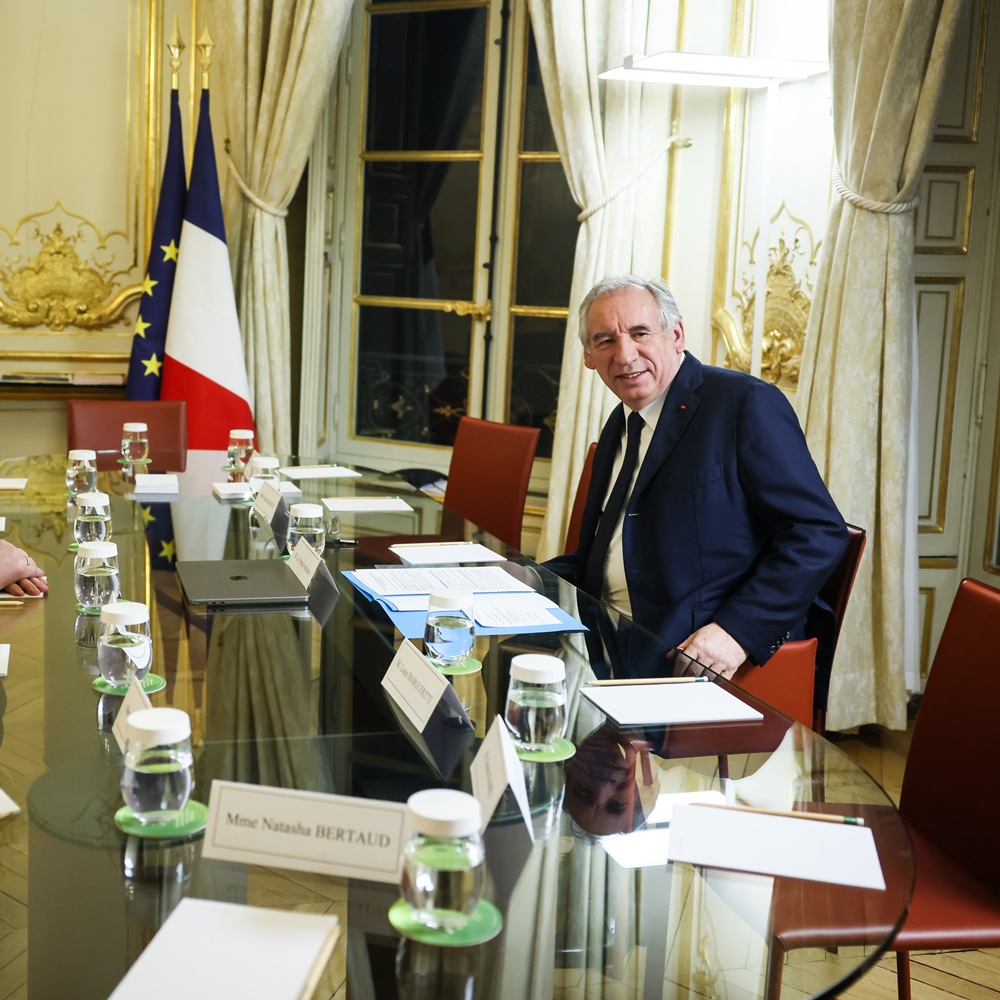
France at a political impasse after the fall of the French government
by Anja Czymmeck
Anger, frustration and no confidence For the first time in the history of the Fifth Republic, a French government has been toppled following a vote of confidence based on Article 49.1 of the constitution. On September 8, the National Assembly refused to trust the cabinet of Prime Minister François Bayrou - a historic turning point in French politics. The Élysée Palace announced that President Emmanuel Macron had "taken note" of the government's failure and would "appoint a new prime minister in the coming days". While strikes and blockades have been announced for September 10 and 18, which are intended in particular to express the dissatisfaction of the French with regard to their purchasing power and further economic cuts, the question arises as to how Macron intends to maneuver France out of the political impasse and survive until the 2027 presidential elections. Clear vote, divided bourgeois-conservative camp Prime Minister François Bayrou's government clearly lost the confidence of parliament with 364 votes against, only 194 in favor and 15 abstentions. The result reflects a broad rejection of the government in almost all political camps. MPs from the Rassemblement National (123 votes), the populist left-wing La France Insoumise (LFI) (71), the Socialists (66), the Greens (38), the Communists (17) and the parliamentary group of former Les Républicains leader Eric Ciotti voted unanimously against the cabinet, Union des droites pour la République (15), as well as the majority of the opposition group Liot (Libertés, indépendants, outre-mer et territoires) (15 of 23 MPs), which unites several MPs from the center-left, center and center-right spectrum. Even six non-attached MPs did not express their confidence in Bayrou. The disagreement within the conservative Républicains parliamentary group was remarkable with regard to the government participation to date. While many parliamentary groups took a united stance, the Républicains were very divided: 13 of their MPs voted against confidence, 27 in favor and 9 abstained. In the run-up to the vote, parliamentary group leader Laurent Wauquiez had given MPs a free choice and expressed so much criticism in his speech before the vote that it was easy to forget that his party provides some of the ministers. On the government side, in addition to almost all MPs from the presidential camp Ensemble pour la République (90 out of 91 votes), the partners from the MoDem alliance (36 votes) and Horizons (34 votes) also voted in favor of confidence. Support also came from 27 Républicains MPs, four members of the Liot group and three non-attached MPs. In addition to the nine LR MPs, abstentions came from four Liot members, one non-attached MP and Violette Spillebout from the presidential majority. Reactions of the parties and options for action The fall of Prime Minister François Bayrou reflects the ongoing political instability in France. Head of state Emmanuel Macron, who is being held responsible for the crisis even within his own camp due to the dissolution of the National Assembly in the summer of 2024, is under pressure to put forward a new candidate for the post of prime minister. All parties appear trapped in their positions and show little willingness to compromise. Emancipation of the presidential majority from head of state Emmanuel Macron Former Prime Minister and current leader of the Ensemble pour la République parliamentary group, Gabriel Attal, criticized a "state of permanent instability", which in his opinion could not be remedied by early elections. Dissolving the National Assembly would be "the worst solution", he explained. The real challenge does not lie with the electorate: "The French voted a year ago. The problem is not the citizens, but a political class that is incapable of agreeing on a common path." Gabriel Attal, therefore reiterated his wish on September 9 that President Emmanuel Macron should first appoint a "negotiator" before a decision is made on the appointment of the prime minister. According to Attal, this person should "not come from direct active politics“ but should be able to "bring all the players to the table". While the Élysée Palace announced that President Macron would appoint a new prime minister "in the coming days", Attal emphasized that the only relevant deadline was 31 December - the date by which the budget for 2026 must be adopted and the draft of which must be submitted to parliament by 7 October at the latest. People close to President Emmanuel Macron assume that he will not appoint anyone he does not know well or whose convictions do not match his own. The appointment of a minister from the Bayrou government is therefore not completely out of the question. The names of Defense Minister Sébastien Lecornu, a close confidant of Macron, and Catherine Vautrin, Minister of Labor and Health, whom Macron almost appointed as Prime Minister in 2022, but then opted for Elisabeth Borne, have been mentioned. The name Gérald Darmanin is also mentioned particularly often, who, as Minister of Justice and former Minister of the Interior, originally came from the ranks of the Républicains. However, his appointment could quickly meet with resistance from the left. The name of the current President of the National Assembly, Yaël Braun-Pivet, is also circulating. Fall of the president as a logical consequence of the election result for the left-wing populist France Insoumise The leader of La France Insoumise (LFI), Jean-Luc Mélenchon, called the result of the confidence vote a "clear victory" and declared that Emmanuel Macron was now "on the front line against the people". The founder of the far-left party called for the head of state to resign immediately. Immediately afterwards, LFI parliamentary group leader Mathilde Panot announced the filing of an impeachment motion against the President of the Republic. There is no willingness on the part of LFI to enter into talks to propose a prime minister together with the former allies of the Nouveau Front Populaire, namely the Socialists. "The only government we will support is our own, the one based on a program of change," Mathilde Panot emphasized on 2 September. A government with socialist representatives, should it come into being, could not expect the support of La France Insoumise. The Socialists see their chance The leader of the Socialist Party, Olivier Faure, is in favor of President Emmanuel Macron appointing a prime minister from the left-wing camp. His name was already mentioned as a potential candidate before the vote of confidence, and he signaled his willingness to be available. When asked how the Socialist Party would react to the possible appointment of a prime minister close to Macron, such as Sébastien Lecornu or Catherine Vautrin, Faure avoided giving a clear answer. "I'm not going to take part in speculation about what I would do with this or that person. At the moment, it's about laying claim to government responsibility and creating the conditions for this," he explained. Given the 66 MPs that the Socialist Group has at its disposal, it would have a central role to play in the current composition of the National Assembly. "What we need today is change," Faure continued. "We must finally open up a political perspective to citizens who are clearly expressing their dissatisfaction - one that does not consist of merely continuing what we have been experiencing for years." If the next prime minister does not come from the left-wing camp, the question arises as to whether Emmanuel Macron will at least facilitate a dialog with them in order to avoid a renewed rejection by the Socialists and the person sought would also have to be "acceptable" to the bourgeois-conservative camp, which is likely to be difficult. Bernard Cazeneuve, former Prime Minister under François Hollande, is considered a possible candidate from the ranks of the Socialists. However, his distance from the party makes broad support from the left difficult. His name was already under discussion after the dissolution of parliament in June 2024 - but Macron decided not to nominate him. Other names that have also been mentioned include Finance Minister Éric Lombard, a former member of the Socialist Party, and Raphaël Glucksmann, leader of the social democratic Place publique. The Rassemblement National calls for new elections During the debate on the vote of confidence in the National Assembly, Marine Le Pen called on Emmanuel Macron to dissolve the National Assembly and called for new elections. Marine Le Pen said: "Dissolution is an obligation for him [Emmanuel Macron]". In the event that a new prime minister is appointed from the presidential majority or the left-wing camp, the leader of the right-wing populist party, Jordan Bardella, announced that his parliamentary group would refuse to trust him. With regard to the impeachment proceedings announced by France Insoumise against Emmanuel Macron, Jordan Bardella sharply criticized Jean-Luc Mélenchon. He accused him of seeking "disorder, the collapse of the country and the destruction of social cohesion". At first glance, the party's position appears contradictory, as the leader of the parliamentary group, Marine Le Pen, has been declared provisionally ineligible, although her legal remedies have not yet been exhausted. Le Pen has already announced that she will submit a Question Prioritaire de Constitutionnalité (QPC) in the event of early parliamentary elections, which will question the constitutionality of the provisional ineligibility. Disagreement among the Républicains about their own role in the party structure Bruno Retailleau, leader of the Républicains and still Minister of the Interior, emphasized the urgent need to appoint a new Prime Minister immediately. In view of upcoming demonstrations and a "particularly sensitive September for riots", there should be no vacancy of power. "We need a prime minister who embodies the power of government as soon as possible. This is of crucial importance - especially with regard to safeguarding public order," Retailleau emphasized. Retailleau made it clear that the bourgeois-conservative camp would not accept the appointment of a prime minister from the ranks of the Socialist Party under any circumstances. For him, it is clear: "There is no question of accepting a government that includes ministers from the left or even France Insoumise." This is the only way to ensure a clear demarcation from the left-wing opposition. Retailleau thus sets himself apart from parliamentary group leader Laurent Wauquiez, who warns against premature condemnations and does not seek "automatic censorship" against a government with socialist participation. He only considers a rejection to be justified if the executive actually "includes ministers from La France Insoumise or implements the program of the Nouveau Front Populaire." The preferred candidate of parliamentary group leader Wauquiez is Xavier Bertrand, who briefly left the party and was an unsuccessful candidate in the 2022 presidential elections, but then returned to the party and has been the president of the regional council in the Haut-de-France region since 2016. Conclusion and outlook The pressure on the Élysée Palace is increasing and the various political parties are pursuing different strategies - either they are pushing for a dissolution (of the National Assembly) or for the resignation (of the President). For some of them, political stability no longer has any value and the will to reform does not appear to be sustainable; on the contrary, reforms that have already been implemented, such as pensions, are to be reopened and renegotiated. In the meantime, the voices calling for electoral law reform are becoming louder again - radical voices even see the end of the Fifth Republic. However, it is also clear that the constitution of the Fifth Republic and its institutions are not responsible for the political polarization, but rather the current majority situation. The tripartite division of the political landscape reflects the feelings of French voters, which, according to polls, would not change significantly even if new elections were held. It remains to be hoped that the democratic parties in the center can pull themselves together to form a government with a clearly defined work plan that can pull the country out of the crisis. This would require a willingness to compromise and negotiate across party lines without the involvement of the extremes. Unfortunately, the current signals from the party leaders give little hope of an agreement in the interests of France's political (and economic) stability. The country is facing turbulent days, not only because of the desperate search for a stable government, but also because of the waves of protests announced by trade unions and left-wing groups that threaten to paralyze the country. The text of this work is licensed under the terms of "Creative Commons Attribution-ShareAlike 4.0 international", CC BY-SA 4.0 (available at: https://creativecom mons.org/licenses/ by-sa/4.0/legalcode.de)









